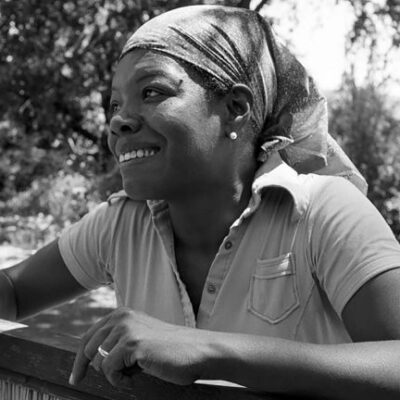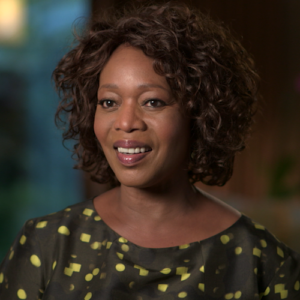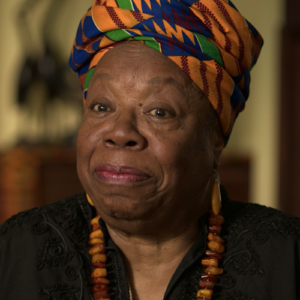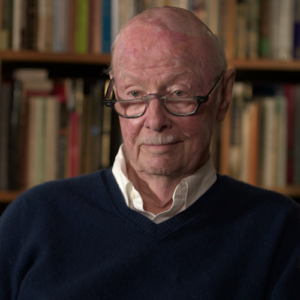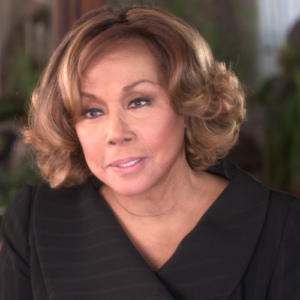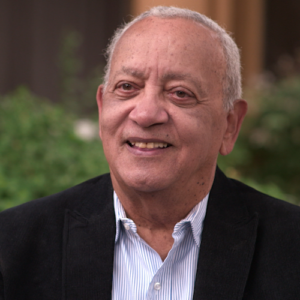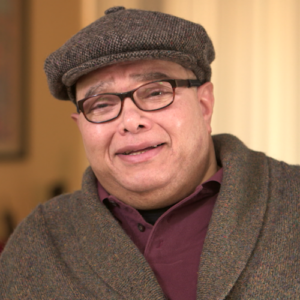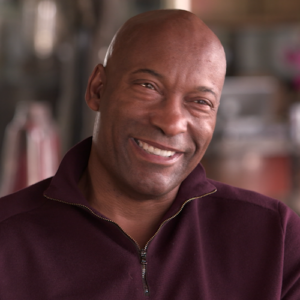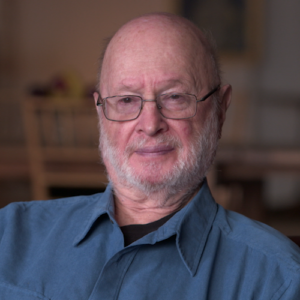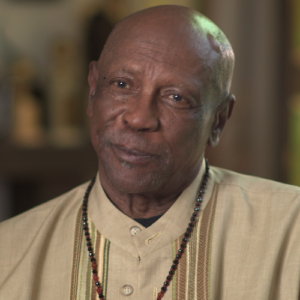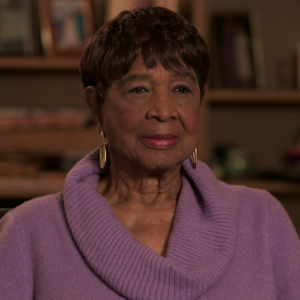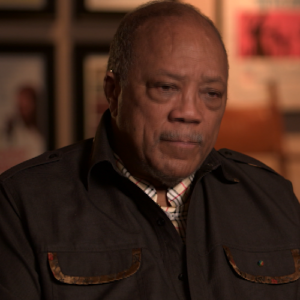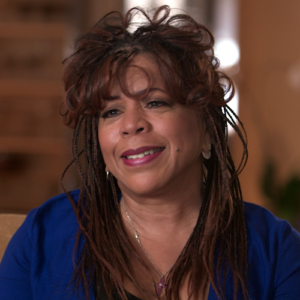Speaker 1 What we want to do is go back a little bit to your first and earliest encounter with the work of Maya Angelou, whether it was in school or wherever it was. If you can take me back there and my questions will not be a part of your answers. Okay. With that said, what was your first encounter?
Speaker 2 My first encounter with Dr. Maya Angelou was her work. I read her work when I was in fifth grade. English teacher of mine was teaching us about literature and great American literature and then eventually, specifically black writers. And and when I when I came across her writings, it was it like struck me. It really was something that resonated with me, that they felt like it was the opening for me to wanting to be a writer. And to be honest, I didn’t know that at the time, but it was like I always would remember that I still I write poem and and I know why the Caged Bird sings like those things were. Or as in fifth grade, were things that really like changed my, my perspective on like work and writing and reading because it wasn’t as fun initially like to read. But then when I read stuff, I when I read Dr. Angelou’s work, I was like, Man, this is I was inspired. So I remember encountering them in fifth grade through my teacher, whose name happened to be Mrs. Land.
Speaker 1 So when you encountered that work and begin to go into your own early years of poetry that may have led to what you do now? I wondered, did you ever over that time, were there other works of hers? Did you ever read Caged Bird, for instance? Because that part of it. Most of us think it’s a novel, but it was her life story. Did you ever read Caged Bird?
Speaker 2 Yes, I read that reading Caged Bird was part of our life. That was part of our curriculum. And I read that and I read that at a young age I didn’t like actually go back later and read it. But I also, you know, Phenomenal Woman was something that kept I kept coming across in life and that was always a good reminder for me of, you know, because I grew up around. My mother was a phenomenal woman and just was a reminder to me of the greatness that you see in women and and the strength and in, you know, just the presence of of phenomenal women. And and by that resonated not that that’s work that would show up in my work is in many ways because a lot of times in my songs I would like do songs to women that were, you know, uplifting women. And I think, you know, that phrase, phenomenal women, phenomenal woman always stuck with me in my head and in my spirit.
Speaker 1 Now I want to go to the point when you met Maya Angelou, you maybe didn’t know that you were going to meet her in your life. How did it come about that the two of you had your first kind of idea, whether it was a radio program or whether it was a physical meeting? What was that like? Was what was the circumstances?
Speaker 2 Well, the first meeting we had came about because I was supposed to be a part of this fundraiser foundation event. And it was a poet who was supposed to accompany. We were we were supposed to do it together. And like, at the last minute, it didn’t work out with that person. And my mother suggested that we get in touch with Dr. Angelou. And I was like, Come on, do you think we going to get in touch with the Maya Angelou like this? You know? And we eventually did. And when we got in touch with her, we told her what the situation was. And she and she said, okay, well, let me make comment. You know, let me meet them and see, you know, because I you know, I know she might have been somewhere. She might have heard the name. I don’t know what like how much how well she knew me, but she wanted to meet me and make sure it was something that she wanted to be a part of. So I went to her place in Harlem and we sat down and talked for hours. You know, what was what struck me was like I knew I was in the right place, like it was a divine place where I was at. Because before I went to Dr. Angelou’s house, I was sitting in my barber’s chair and he cut my hair and I left. And 3 minutes later, some guys came by and shot up that place. And it was like I missed. And I was like, on my way to see Dr. Angelou. So I knew I was like, I’m going to the right place. You know what I mean? It was like divine order that that struck me. So when I was sitting there talking to her, it was like one of those moments like where you you’re like, Man, I never knew I would be here. And in the presence of Dr. Maya Angelou and talking about the things we talking about because we talked about everything just from my life to her life to Paul Robeson to Tupac to food, to the art that she had in her home to just, you know, love. It was just one. And I felt really close to her and really, you know, cool with it and at the same token, still have that reverence. But it was like a really getting to know her in that conversation. That was our first meeting and it was the beginning of, I would say, a great like bond and friendship and and relationship.
Speaker 1 You met her. You go all did this fund raiser. It was at a venue in New York where there were a lot of it was an Italian restaurant. It was upstairs. Yes. To be there that. Yeah. Yeah. So I went along with you guys. And she was speaking. Did you hear when she was speaking Italian to all of the people?
Speaker 2 Yeah.
Speaker 1 She just fell right into it. Seven languages. Yeah. And she just fell right into that. And the two of you took the stage together? Yes. Paint a picture of. Of that place and taking the stage with her for the first time. And I remember she talked about how handsome you were to that. Yes.
Speaker 2 Yes. I mean, yeah, Yeah, I remember that. So, yeah, when we we take the stage in this event and it’s, you know, it’s a it’s a multicultural crowd. Definitely the foundation was like Italian based. And Dr. Angelo was able to elaborate and speak the language of Italian. It’s one thing she always would say to me, don’t like don’t say dialect, say language, because I, I would say, you know, the African dialect, It seemed like, no, it’s the language. Don’t don’t let them take it down to just being a dialect. It’s a language. And anyway, she used that language and obviously she used language to uplift to where she was able to speak Italian. At that event, me being on stage with her, it was just like, Man, I’m standing next to one of the greatest like people that that has graced like the Earth, Like this is somebody who, whose presence I people will know for, for hundreds of years and like has influenced the world and like and, and impacted it in such a positive way. So when I’m standing next to that light, it’s like, man, I’m just grateful to be there. You know, your heart beat some. You know, you also just want to perform in a great way and and just, you know, you like let loose at a certain point because you also like minimal artists too. So then you know, you want to do your thing. And I remember that night. She didn’t like. You know, I was thinking, there’s one thing I can say too many people can say about Dr. Angelo. And she flirted with me a little that night. So that was fun. It was cool. You know, she gave me a little love, so. So that was great. And, you know, that was the beginning of our bond.
Speaker 1 People have talked about that bond because you also did another performance together for the 100th anniversary of the Urban League. And I think we may have some tape on that. What she said to me was she would do the poem. Our fathers sit on benches. There’s something feels every play. Yeah. And she would do it in her poetry. And then you would do a stanza in what your what she called your preferred language of hip hop. Yeah. Tell about how that came about and what it was like to do that for the 100th anniversary of the Urban League.
Speaker 2 Well, yeah. So, you know, we were honored to be that to be at the 100th anniversary of the Urban League. And as I remember being in the green room and looking at the footage of what they were showing and just the history of black people throughout, you know, what has happened throughout and for this country and like what we’ve contributed to this country. So it was like a really prominent event, like a monumental event. And the fact that I think Dr. Angelo, we created together, like, see, like, okay, you’re going to give us these bars over here. I’m a slave part of this poem. And then you give us a couple of bars, you know, Maceda poem, and you’re like, that was I mean, to be collaborating in a creative way with Dr. Angelou was like, you know, that’s high level, you know, And it just and it just reminded me of the artistry because when you hear her poems, it reminds you how far you could be as a writer. And I think, you know, in that moment, it reminded me of how I truly am artists, you know? And I got to be with one of the great artists, and we just were able to just collaborate. And I can remember, I think Dr. Cornel West was in a crowd and several people, and we kind of got into like a spontaneous freestyle type of thing. And, you know, she was bringing her poetry and it was it was a great moment of just honesty and and spontaneity and yeah, that’s what I mean. It’s one of those times I will always remember.
Speaker 1 So besides doing that together, you actually interviewed Dr. Angelo in a TV special that came about from the team Call it pictured the two of you as soul mates. And you. You interviewed her and I think wrote with her on the bus. Yes. And cooked in the kitchen.
Speaker 2 Oh, yeah. Well, yeah. For four soulmates, we were I was able to interview her. And I mean, the interview was really just a conversation because it was like, of course I was interviewing her. But, you know, Dr. Angelo was like, you know, you’re going to get some out of the interview and she’s going to like, at the same token, be able to direct it to the way she wants to. And obviously she’s going to say and get her perspective across. So as much as I was interviewing, I was learning and listening. I mean, and you should interview and know we really were just having a great discussion, to be honest. It turned out we sat on in her front room for hours filming this soulmates. But then after that we got to like, go in the kitchen and just chill out. I mean, this one the first time we hung out in our kitchen, but she had made, you know, maybe some salads and cooked up some food. And I think I had some wine that day too, which was great. So it was like a great afternoon. And in North Carolina and Dr. Angelo’s place. And yeah, I remember filming that. And, you know, I mean, obviously we have a friendship, but I mean, in each moment I got to be around her and it was still monumental. You know, it was a lot of, you know, even if it was like just a casual time, it still like, struck my life in such a positive way. So that that being there for soulmates was just a great afternoon. Like we flew in and had to fly out like so, but it was like, man, this is this is what we just did today, is nothing can, can like, supersede that is better than that.
Speaker 1 And you were there in the backyard 80th birthday party that we did. And you decided to freestyle for her?
Speaker 2 Yes.
Speaker 1 And kind of honor her with your work. So tell a little bit about that day. So you saw her 80th birthday party or her 80th? That was when I think that’s what it was.
Speaker 2 Yes. Well, I was able to be at her birthday party and like and we had a great time. And it was like everybody was just was joyous and happy to be there to celebrate Dr. Angelo and. Well, you know, after enough drinks and everything, we had a good squeeze, having a great time. You know, it was everybody. People would say different people were taking the stage, saying things. And this time, you know, I just decided to freestyle because I was like, Man, I’m gonna pay tribute to her in a freestyle. And like, you know, it was like it was just the fun. We had the music there. It was like the element where people could appreciate it, and she knew that was a dedication to her. And I want her to know that, like, you know, I, you know, I’ll do anything for it, but this freestyle is what I do. So I just, you know, gave a quick freestyle, all.
Speaker 1 Of that performance together. That brings me to what has become known as the beef. And that’s when you captured her poetry and put it in a song that also had expletives. And then there was a news blurb about that. Tell us about how that came about. You get to do the poetry, set that up, and then go into.
Speaker 2 Where I was working on my new album, The Dream of the Believer, and being Dr. Maya Angelou was a friend of mine. And I mean, if I can get Angelou to do a poem on this song, The Dreamer, it would be incredible because it’s just like the music just felt like that type of it. It could be due for some great poetry. And I was like, Who has had Angelo with hip hop artist has ever had her on an album? Just, you know, the first I was excited about just having her on my album. So she was able to do it. She was with this. She, I, I sent her in, had had a conversation with her about what the what the song was about and, you know, and gave her I think I gave a piece of the music, but she wrote a piece for it and it was incredible. And she put it there and we placed it in the song and the song came out wonderful. Well, I was using like the N-word in it. So a writer brought that up to her. And and she, you know, expressed that she wasn’t happy with that. You know, in the media, obviously, it was like, okay, it’s a beef, you know that you know, that the my Angelo was not happy with, you know, or, you know, they they took it to the next level. We went and just she’s not happy that it was like some beef you know comment and that to my well and I was I was like man this is strange because this person is somebody I love and care about. I don’t think you know, I would think think of this as beef. So obviously, I, I got on the phone with her and apologized for her not being aware that the N-word was was in that song. And at the same token, she said, look, you know, I want to use that word with you, my family. So, you know, you can’t divide us. You know, they’re not going to divide us no matter what. And, you know, she’s told you before, don’t be using the word. And I was. And, you know, but, you know, I was I gave him my my perspective on, you know, this is this is part of our culture. And I know the word came from a bad thing. We tend to some positive she went out of here that she’s you know, she had a stance and and a belief on that were. So I understood that we came together to you know, it was never a beef, you know, to be honest. It’s just a it’s just a situation like where someone who cares about you, I don’t want you to do that. And you’re like, Well, this is what I want to do. I’m expressing myself. And we just, you know, we got an opportunity to go publicly and express how, you know, we together is now she was you know, she said we were on one on six in park. And, you know, we did an interview together on one on six and park on Betty. And she expressed to the world like, you can’t divide me in common. This is you know, this is my family, is somebody I respect. I have reverence for his work and work. It means something in the world. And and I love him. So there was no division. And that, you know, that’s just the. The truth of Maya Angelou. She’s just that like warrior person, knows how to handle situations, knows how to not get off and finagle the bamboozled into any like, craziness, and also knows how to handle family business. Like, man, I wish that was family business. Anything that I needed to hear, she was able to say directly to me. And we come out of the house together.
Speaker 1 You know. What do you think her impact will be in the culture in the future? And I think you talk a little bit about what it was to you, but if you could combine that, what is her impact and coach?
Speaker 2 Well, Dr. Maya Angelou was impact on the culture from present to the future will be that of inspiration. I believe she will. The evidence by the generations from, you know, years and years from now to people who are younger, people who are just discovering that for whatever reason, her work is inspiring. Her work kind of goes to the core of who a person is and brings out the best in them. It tells us of struggles, but progress and it’s hard work. You know, we’re definitely like be that will to inspire women and uplift women and also give women a sense of who they are. And and also to me would show men it reminds us how we to respect women and and and how we should revere women because she brings that light to so women and people in general. So our work will always be here for us to to grow in and learn and be inspired.
Speaker 1 When we started this process, this documentary, when we started talking about doing that, she was with us.
Speaker 2 Yes.
Speaker 1 And as of May 28th, she made her sit. And so we have to look at how. How did that affect you personally when you heard about it and then were there for the memorial? So I’d like you to talk a little bit about that.
Speaker 2 Most definitely affected me when I found out that Dr. Maya Angelou had made us. It was one of those things. It was strange because the day before I was working on a film called Selma, which Oprah Winfrey was producing and acting. And also so the day before that, Angelou passed. Oprah. And I was having a conversation. We were sitting in the makeup chair and she was like, Angelo’s happy we’re doing this movie together. I just was this Sunday. And I said, You know, I need to go down and see Dr. Angelo. I need to just relax down there and chill out and just go see her. And the next morning, I got the news that she had passed, and it was it was like I was trying to keep my day going, like, because, you know, we it was Oprah’s first day of filming and we were going through. But it was you know, I took it in for a second, but it just hadn’t hit me, you know, as Oprah as she was doing. And she said, I’m okay. I’m okay. And then, you know, we we started going through the day and our director took a moment to just pay homage and respect for Justin before we were shooting, before we started to do a scene. And she paid homage in respect to to Dr. Angelou and said, we’re going to do this in honor of her. And I just man, I just went and had my moment at that point. And I because it was just too much. And it’s been a process because. You know, there’s somebody I’ve definitely, like, loved and cared about as a human being and got and was getting to know even more. Got to know and get to know even more. You know, and I just you know, it was nice to have be able to talk to her because when you talk to her, you remember your purpose. You remember what you’re here for. And, you know, to not hear that voice of of understanding and reason and and consciousness and love, you know, it’s something. But, you know, I am a believer in that, you know, she is still with us. You know, the spirit was she contributed to the world will be here forever. So maybe not in the physical. Do we see her? But the spirit is here.
Speaker 1 Anything you want to share from that time? You know that you went down to the memorial in Winston-Salem to celebrate her life and what that was like.
Speaker 2 And that memorial. The memorial we went to for Dr. Angelo was. It was very, very special. I mean, it was one of those things where you you see how distinguished and how respected and honored she is across the board. You know, when you have Bill Clinton, you have the first lady, you have Oprah Winfrey, you have no Valerie Simpson. You have like these people from different walks of life to life that are there. To honor her and to celebrate her and the way you know, where we were in the chapel at Wake Forest. And, you know, just it just was like a it felt like a very distinguished event and celebration. And it was, you know, done beautifully. And then the after event felt just like when Dr. Angelo would have won. And it was like we were eating food and enjoying music and and like Shirley Caesar singing and wine is Marvin wine. And then Bobi Wine is singing. And like, it’s just it was one of those. And it was art. And people just feeling like telling their stories and telling them, expressing their love for her. It was a celebration, a true celebration. And funny enough, her birthday event that we had like maybe two years before, that reminded me of the memorial celebration that we had, you know, the active event at the memorial celebration, because it was just still it was still, you know, a good time. And we were holding up the queen like, hey, this is who we love, and we just suppress it through this art and fun and talking and food and good times. One time I was like at Dr. Angelo’s house and we were about to think we were about to celebrate her birthday, and we were all around the table talking and she was telling me a TV show she had been watching and. The personnel of the assisted in my who was working with me and we were all sitting around a table and then she, she she told her to come over Christian. She told Christian to come over and like she wanted to whisper something. And I was I was wondering like, man, whether she was being like, you know, So later I you know, I saw Christian saying something. Whatever. Dr. Angela said. It changed her and shifted a little bit. And I later on I was Christian. I said, Man, what is she? What did she tell you? Like, I. I was one and I was like, what is? And she was like, man. And she told me a woman shouldn’t be chewing gum at the table. And as you know, I love the way she did it because she didn’t, like embarrassed in front of everybody. She leaned over like a woman does not chew gum in public at the table. And, you know, because they had to take out of gum and no, Christian was very happy about, you know, getting that lesson from that as well. And it was and I appreciated those lessons. I got like, you know, see, when she wouldn’t sugarcoat things. And I loved the fact that, like, she she taught me something that I really would have always, you know, do my best to be humble and like, you know, I. I wouldn’t embrace all of my greatness. And she was like, Man, that’s for the birds. You don’t need to do that. You got to you got to show your greatness and express it in every place you go. Just be and let it and let it be in life. You can have humility, but you don’t have to humble yourself where you don’t like. Want to express who you are and express how great you are. And that, you know, the phrase of modesty that we shared before is like, there’s no need to do that and be fake. Would it be be true to who you are so that greatness is like the lamp. The lamp. This is a Bible verse that says the lamp that, you know, a lamp is not made to be put under the bed, but put on a lamp stand. So, you know, when she would tell me that, it reminded me of that, I just let you listen.

